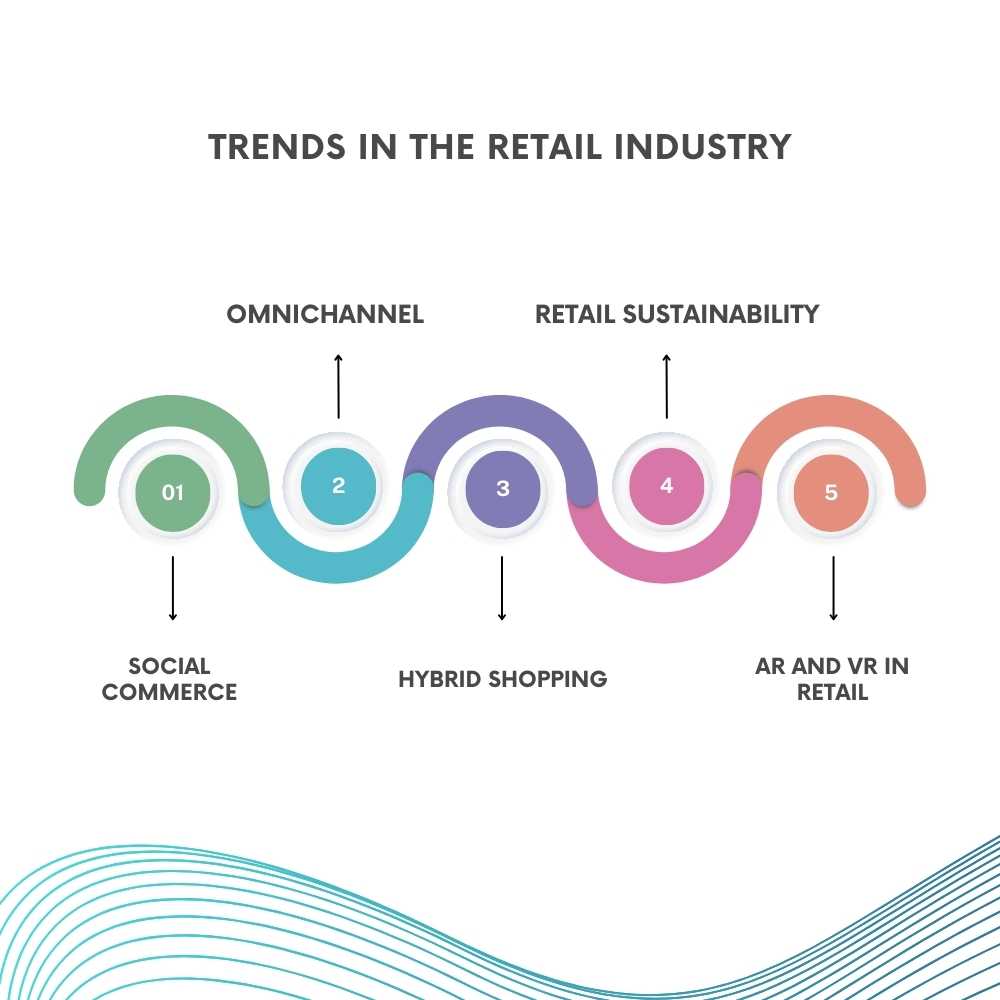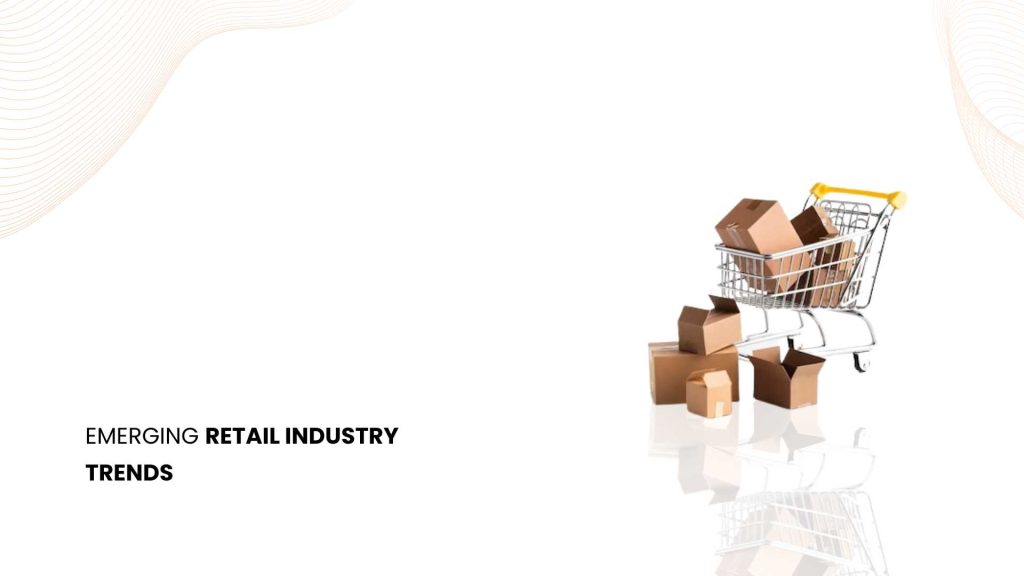The retail industry is undergoing a major transformation as technological advancements and consumer preferences evolve. An edge in this dynamic environment is crucial for businesses looking to succeed. In this article, we’ll explore the significant trends influencing the future of the retail landscape.
Omnichannel
Omnichannel retailing has emerged as a cornerstone for success. Customers expect a seamless shopping experience across online and offline channels. Retailers are integrating their physical stores, e-commerce platforms, and mobile apps to provide customers with a cohesive journey, blurring the lines between the virtual and physical realms.
Social Commerce
Social commerce is reshaping the retail landscape by leveraging the influence of social media platforms. Retailers are tapping into the vast user base of platforms like Instagram and Facebook, turning them into shopping hubs. Social commerce facilitates product discovery and creates a more interactive and engaging shopping experience.
Augmented Reality
Augmented reality (AR) is enhancing the way consumers interact with products. Retailers leverage AR to enable virtual try-ons, allowing customers to visualize products before purchasing. This technology enhances the shopping experience, reduces return rates, and increases customer satisfaction.

Experiential Marketing
Customers are pursuing better than just products; they crave experiences. Retailers are responding by focusing on experiential marketing strategies. From in-store events and interactive displays to immersive pop-up stores, creating memorable experiences is becoming integral to capturing and retaining customers’ attention.
Artificial Intelligence
Artificial intelligence (AI) is streamlining various aspects of retail operations. From demand forecasting and inventory management to personalized recommendations, AI is helping retailers make data-driven decisions and improve the overall customer experience.
Retail Sustainability
Sustainability has become an effective element impacting customer choices. Retailers incorporate eco-friendly practices into their supply chains, packaging, and operations. Sustainable practices attract environmentally conscious consumers and contribute to building a positive brand image.
Hybrid Shopping
The line between online and offline shopping is obscuring with the rise of hybrid shopping experiences. Retailers leverage technologies like QR codes and mobile apps to connect the physical and digital realms seamlessly. This approach allows customers to enjoy the convenience of online shopping while still engaging with the in-store experience.
Ethical Business Practices
Consumers are increasingly gravitating towards brands that prioritize ethical business practices. Retailers are expected to demonstrate social responsibility, transparency, and ethical sourcing. Adopting ethical practices aligns with consumer values and fosters trust and long-term brand loyalty.
AI and ML
Artificial Intelligence (AI) and Machine Learning (ML) are revolutionizing how retailers understand and engage with their customers. These technologies enable advanced analytics, predicting consumer behavior and providing insights that help craft targeted marketing strategies.
Personalization and Customer Experience
Personalization is key to winning customer loyalty. Retailers use data analytics and AI to understand individual preferences, tailoring product recommendations and marketing messages. Improving the overall consumer experience through customized interactions is a powerful strategy for customer retention.
Voice Commerce
Voice commerce is gaining traction as consumers embrace virtual assistants. Retailers are optimizing their platforms for voice search and commands, making it easier for customers to purchase using voice technology.
AR and VR in Retail
Virtual Reality (VR) and Augmented Reality (AR) are changing the retail landscape by producing immersive shopping experiences. From virtual storefronts to virtual try-ons, these technologies enhance customer engagement and provide a futuristic dimension to the traditional retail experience.
conclusion
Implementing Acumatica Cloud ERP presents a transformative opportunity for the retail industry. Acumatica’s comprehensive suite of cloud-based solutions enables retailers to seamlessly integrate and streamline their operations, fostering efficiency, data accuracy, and real-time insights. Embracing Acumatica Cloud ERP is not just an investment in technology; it’s a strategic move towards a more agile, connected, and future-ready retail landscape.

Vijay comes with a vast experience in ERP and enterprise solutions space with about 20 years of experience in various packaged application like Acumatica, SAP, Orion, Salesforce.com, SugarCRM and, SalesLogix.

